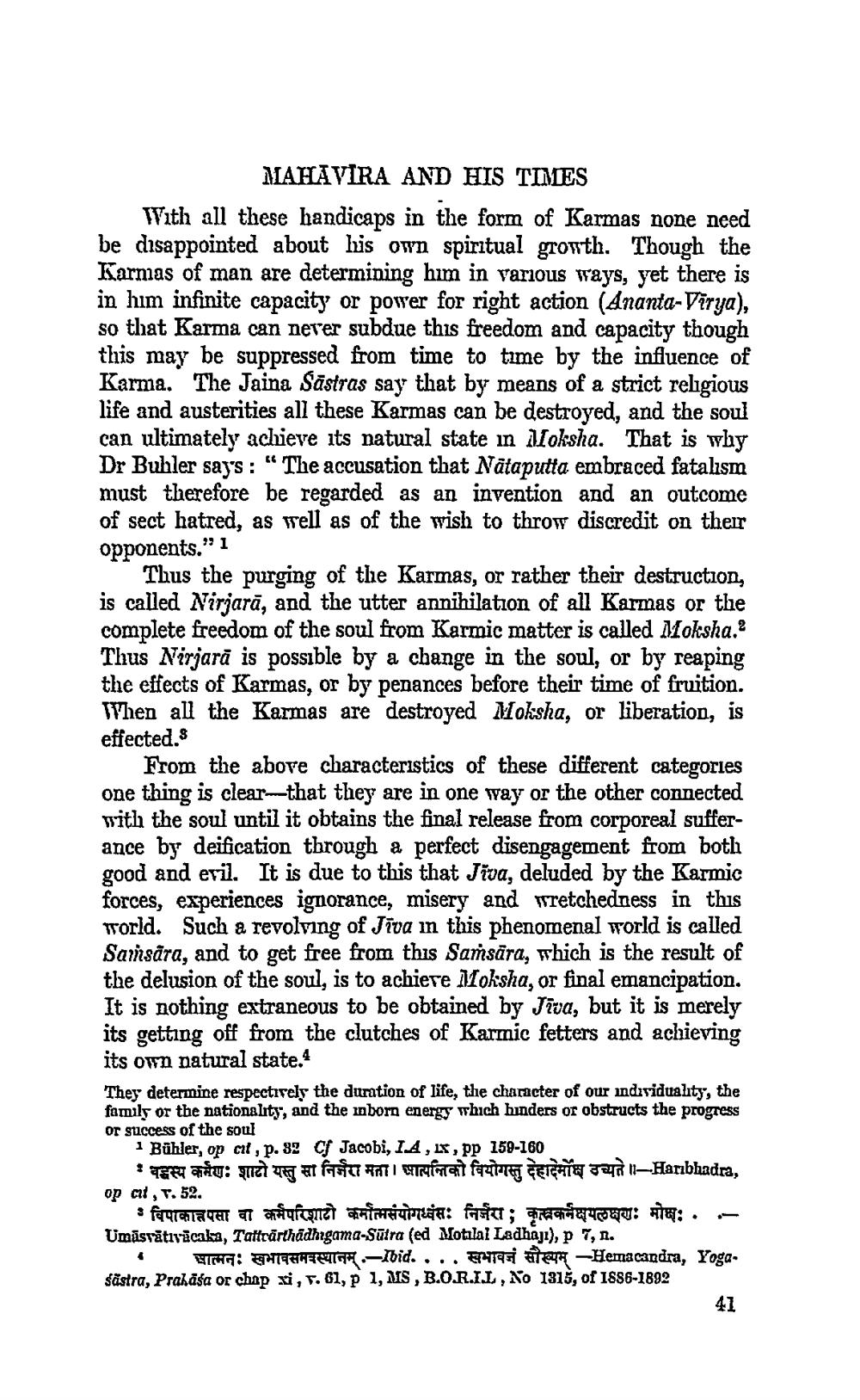________________ MAHAVIRA AND HIS TDIES With all these handicaps in the form of Karmas none need be disappointed about his own spiritual growth. Though the Karmas of man are determining him in various ways, yet there is in him infinite capacity or power for right action (Ananta-Virya), so that Karma can never subdue this freedom and capacity though this may be suppressed from time to time by the influence of Karma. The Jaina Sastras say that by means of a strict religious life and austerities all these Karmas can be destroyed, and the soul can ultimately achieve its natural state in dioksha. That is why Dr Buhler says: "The accusation that Nataputta embraced fatalism must therefore be regarded as an invention and an outcome of sect hatred, as well as of the wish to throw discredit on their opponents." 1 Thus the purging of the Karmas, or rather their destruction, is called Nirjara, and the utter annihilation of all Karmas or the complete freedom of the soul from Karmic matter is called Moksha. Thus Nirjara is possible by a change in the soul, or by reaping the effects of Karmas, or by penances before their time of fruition. Then all the Karmas are destroyed Moksha, or liberation, is effected. From the above characteristics of these different categories one thing is clear that they are in one way or the other connected with the soul until it obtains the final release from corporeal sufferance by deification through a perfect disengagement from both good and evil. It is due to this that Jiva, deluded by the Karmic forces, experiences ignorance, misery and wretchedness in this Torld. Such a revolving of Jiva in this phenomenal world is called Sarnsara, and to get free from this Samsara, which is the result of the delusion of the soul, is to achiere Moksha, or final emancipation. It is nothing extraneous to be obtained by Jiva, but it is merely its getting off from the clutches of Karmic fetters and achieving its own natural state. They determine respectively the duration of life, the curacter of our individuality, the family or the nationality, and the mbora energy which hinders or obstructs the progress or success of the soul 1 Buhler, op cit, p. 82 Cf Jacobi, 1.4, I, pp 250-160 + TERU: QUICHE E FTSTUTATT I W ett fruta CERCHIOT 11-Haribhadra, op at, T. 52. : Fuela HT a AURODUCT CATHED: WO; : Re: - Umisratrvacaka, Zattrarthadhgama-Sutra (ed Motilal Ladhaji), p 7, I. TW: E HHEIT - Ibid. ... T am -Hemnacandra, Yogasastra, Prahasa or chap xi, v. 61, p 1, MS, B.O.R.I.L, No 1815, of 1896-1892 41




